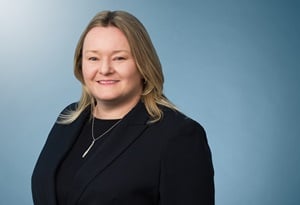U.K. Announces Statement of Changes to Immigration Rules to Take Effect From 1 October 2019
The U.K. Government issued a Statement of Changes to the Immigration Rules on 9 September 2019, followed by an Explanatory Note shortly thereafter. The changes will take effect over a staggered period of time from 1 October 2019 onward, with the main changes relevant to workers summarised below.
EU Settlement Scheme (EUSS)
- Discretionary grounds have been added for refusing an application under the EUSS where the applicant has previously been refused entry to the U.K. or held the status previously, but it was cancelled. This discretionary power must be justified on the grounds of public policy, public health or public security.
- In a 'no-deal' scenario, refusal would also be permitted on the basis that it would be conducive to the public good as a result of the person’s post-Brexit conduct.
- In a 'deal' scenario, refusal could be issued as a result of the person’s conduct after the implementation period on 31 December 2020.
- Clarifications on access to the EUSS for family members of U.K. nationals returning from a European Economic Area (EEA) Member State or Switzerland (which are relevant in both deal and no-deal scenarios):
- Existing close family members (where the relationship existed on the day of Brexit) have access to the EUSS until 29 March 2022.
- Future family members (where the relationship was established after Brexit) have access to the EUSS until 31 December 2020.
- A right of administrative review has now been provided to individuals who have had their status cancelled at the border.
Start-up and Innovator
- In the start-up category, students in the U.K. on a doctorate extension scheme are now exempt from the restriction on having previously established a U.K. business.
- An organisation must now meet additional requirements to become an endorsing body under these routes. The changes include the power of refusal on the grounds of “criminality or other actions or behaviour which are non-conducive to the public good” or due to conflicts of interest.
Tier 1 (Investors)
- Following previous changes, U.K. government bonds are no longer considered to be qualifying investments for this category. If the investor already held Tier 1 (Investor) status prior to 29 March 2019, they may extend or settle in the U.K. provided they move their investments out of U.K. government bonds:
- For leave to remain, the investor must move their investments before 6 April 2023.
- For indefinite leave to remain, they must move them before 6 April 2025.
Changes to Tier 1 (Exceptional Talent)
- Tech Nation (one of the Designated Competent Bodies) requested the following changes:
- Applicants in this category must provide three (previously two) letters of support provided by established organisations in the digital technology sector.
- The phrase “product-led” has been added to the requirements so that this route attracts applicants with appropriate skills.
Tier 2 (General)
- The Migration Advisory Committee (MAC) recommended in its review of May 2019 that new occupations be added or widened in the shortage occupation list (SOL) so that fewer roles will be subject to the strict rules of the Resident Labour Market Test. This will help speed up the recruitment process for employers who need these positions filled.
- Some of these roles include: programmers and software developers, medical practitioners, civil engineers and web designers (the full list is at page 84).
- Some salary rates for Certificates of Sponsorship (CoS) have been changed and will apply to CoS assigned after 6 October 2019.
- Changes have been made to ensure that Tier 2 migrants are not penalised if they are absent from work for various valid reasons (e.g., sick leave, parental leave, assisting in a national or international humanitarian or environmental crisis, or engaging in legal strike action).
- Ph.D.-level occupations will now be removed from the 20,700 non-EEA skilled workers cap.
- Tier 4 students are now permitted to apply to switch to Tier 2 within three months of the end of their course to facilitate such students taking up skilled work in the U.K. To satisfy the English language testing requirement, applicants will be able to rely on their unique reference number instead of sending their certificate.
English Language
- Appendix O no longer exists. The details of acceptable English tests will be on the main gov.uk website.
- Applicants will no longer be required to provide their test certificates. Only the unique reference number is required for both the English language test and the Life in the U.K. test.
- Dentists, doctors, nurses or midwives whose English language is assessed by their regulatory bodies as a requirement for registration will no longer need to pass an additional English language test.
Professional Sportsperson
- The definition of professional sportsperson has changed.
- The rules now confirm that Tier 4 (General) students studying a course at degree level or above can play or coach as amateurs or as part of a work placement undertaken as an integral and assessed part of their course.
Tier 5
- The Foreign & Commonwealth Office government authorised exchange scheme has been removed.
- The list of organisations permitted to sponsor researchers under the “U.K. Research and Innovation – Science, Research and Academia” scheme has been expanded.
- From 1 January 2020, South Korean nationals applying under the Youth Mobility Scheme no longer need to apply for sponsorship from their government before applying for their visa.
Other
- Administrative review applications must be submitted online unless the original application was made on a paper form.
The material contained in this communication is informational, general in nature and does not constitute legal advice. The material contained in this communication should not be relied upon or used without consulting a lawyer to consider your specific circumstances. This communication was published on the date specified and may not include any changes in the topics, laws, rules or regulations covered. Receipt of this communication does not establish an attorney-client relationship. In some jurisdictions, this communication may be considered attorney advertising.



